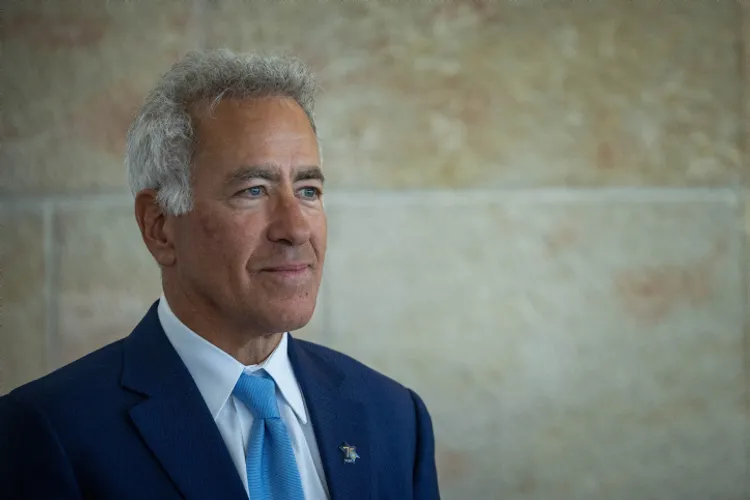
Analyzing the Search for Missing Relatives
Analyzing the Search for Missing Relatives
January 29, 2010
A unique and probably first-of-its-kind research project is underway at Ben-Gurion University of the Negev to analyze the societal effects of the widely listened to “Missing Holocaust Relatives” radio broadcast and newspaper column on Israeli life.
Though today the search for missing relatives can be done relatively efficiently via the Internet – the International Red Cross has just established a Web site for missing Haitians, for instance – this was a much more difficult task in the post-Holocaust period.
Almost daily for decades, and continuing in an abbreviated format even up until last year, Holocaust survivors and others with relatives in Europe would send the names of their missing relatives to the Jewish Agency’s “missing relatives” service and/or to the Voice of Israel radio station.
Life in Israel appeared to come to a stop every day at 1:15 p.m. when the announcer would mention the names of the seeking and the sought, with tens of thousands of people hoping beyond hope that their long-awaited reunion with their families would finally occur.
Tehila Malka, an M.A. student at Ben-Gurion University, is carrying out the research. Though it is hard to quantify the manner in which the daily radio show influenced the country’s Holocaust awareness, “My thesis is that because of the wide reach of the program – 100 percent rating, as there was nothing else to hear — it became a sort of ‘sound track’ for Israeli life in those days when people didn’t really want to talk about what happened in the Holocaust.
“It put names on the survivors, and on those who were killed, and gave names of towns in which they lived, and brought everything closer. Perhaps it even prepared the way for the Eichmann trial [in 1961].
“Many people nod their heads in recognition and understanding when I tell them the topic of my research. Everyone is familiar with the Missing Relatives show. It would not be an exaggeration to say that the experience of listening to it was engraved on the collective Israeli memory.”
Many thousands of people wrote first to the print version of the service, and then to Voice of Israel radio, in search of even scraps of information on their lost relatives. During the six years of World War II itself, only some 2,000 requests for information on missing relatives were received.
But after the war, this number soared, first to 2,000 each month, and ultimately to no fewer than 18,000 requests each month in 1946 and 1947.
“Every letter that arrived received a response,” Malka says. “If there was information on the missing person, it was passed on, but if not, they would broadcast the names over the radio.”
Malka found, to her surprise, that no one had studied this phenomenon before, and with the guidance of Prof. Chana Yablonka of the Jewish History Department in Ben-Gurion, she set out to begin the project.
Malka plans to publish her findings on the way in which the service worked and its influence on Israeli society. Read more or subscribe to a free Daily Israel Report at www.IsraelNN.com.



